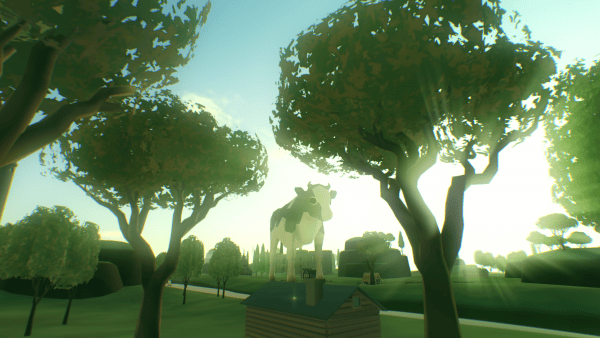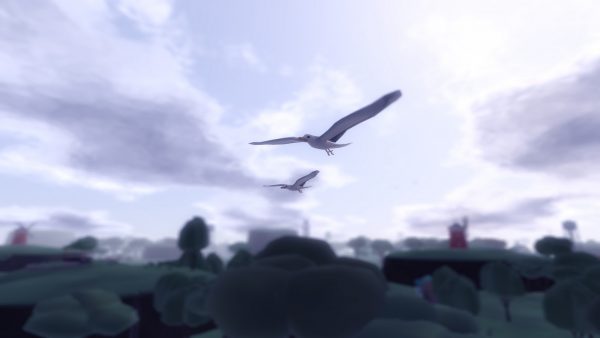Released on the PS4 on March 21st, Everything is interesting. The question is: is it a game?
Everything caught my eye a couple of weeks ago thanks to its soothing philosophical gameplay trailer (see above). I grabbed it following its release and spent a good few hours trying to figure out what to make of it.
In a nutshell, Everything is an exercise in perspective. Players can roam freely through the universe as whatever they want. Run across the hills as a goat? Go for it. Sail the seas as a continent? Sounds ideal. To achieve this perspective change, Everything allows players to move up or down in scale on a whim.
Players can switch between any and all creatures or things on their current plane. For example, from goat to sheep to redwood. Or they can ‘ascend’ into the next plane up, which may include huge rocks. Or they can ‘descend’ into the plane below, which might go from grass down to atoms. It’s neat descending to the level of mice and see the penguin you used to be towering over you.

Everything involves the player through the use of thoughts and recordings of British philosopher, Alan Watts. Random creatures in the universe will have thought bubbles above them. They can offer some pearls of wisdom or just gripe about the mundanities of life. For some reason, all the rocks I find are incredibly passive aggressive.
That which ties the game together, however, are the theories of Watts. They are so inexorably linked to the ethos behind the game that there would be no structure to Everything without them. Audio recordings are portioned out to players as time passes. Bite-sized chunks allow players to appreciate the message, explore that in the context of the game, and ready their minds for the next one.
Challenges
Part of the trouble with Everything is that it’s a video game. But it’s unlike almost any other game out there. All of this begs the question: how do we analyse Everything?
Do we discuss the controls? Do we talk about the way it encourages ease of exploration by allowing you to move seamlessly across lakes – even if you’re a tree? As we move down this path, we start to characterise Everything as something it’s not. It eschews traditional analysis because it simply isn’t traditional.
The foundation of almost all narrative in gaming is our place in the world and our impact upon it. Even if we look at the most basic of plots: our place as Pac-Man and how we interact with the world by eating pellets and avoiding ghosts.
In modern times, we look at games like Dishonored to see how our place, and the world, evolve through our choices. Everything is the antithesis of that notion.

Everything puts the idea out there, in no uncertain terms, that all of the universe is connected. You’re not a standalone thing exerting influence over other discrete things. You’re a somewhat different expression of the same Big Bang.
Everything very well could make an exciting way to interpret a lecture. Or it could do well as a video. Again, because it’s neither it defies our expectations. In fact, Everything includes an autoplay mode to simply allow its audience to enjoy Watts’ narration of, well, everything.
I think I need to jump back into the body of a big horned sheep and talk to some more rocks. Maybe then I can define some structure for myself in the game. It’s definitely an acquired taste, however. But I’m enjoying Everything because it’s just really cool.
-Aidan